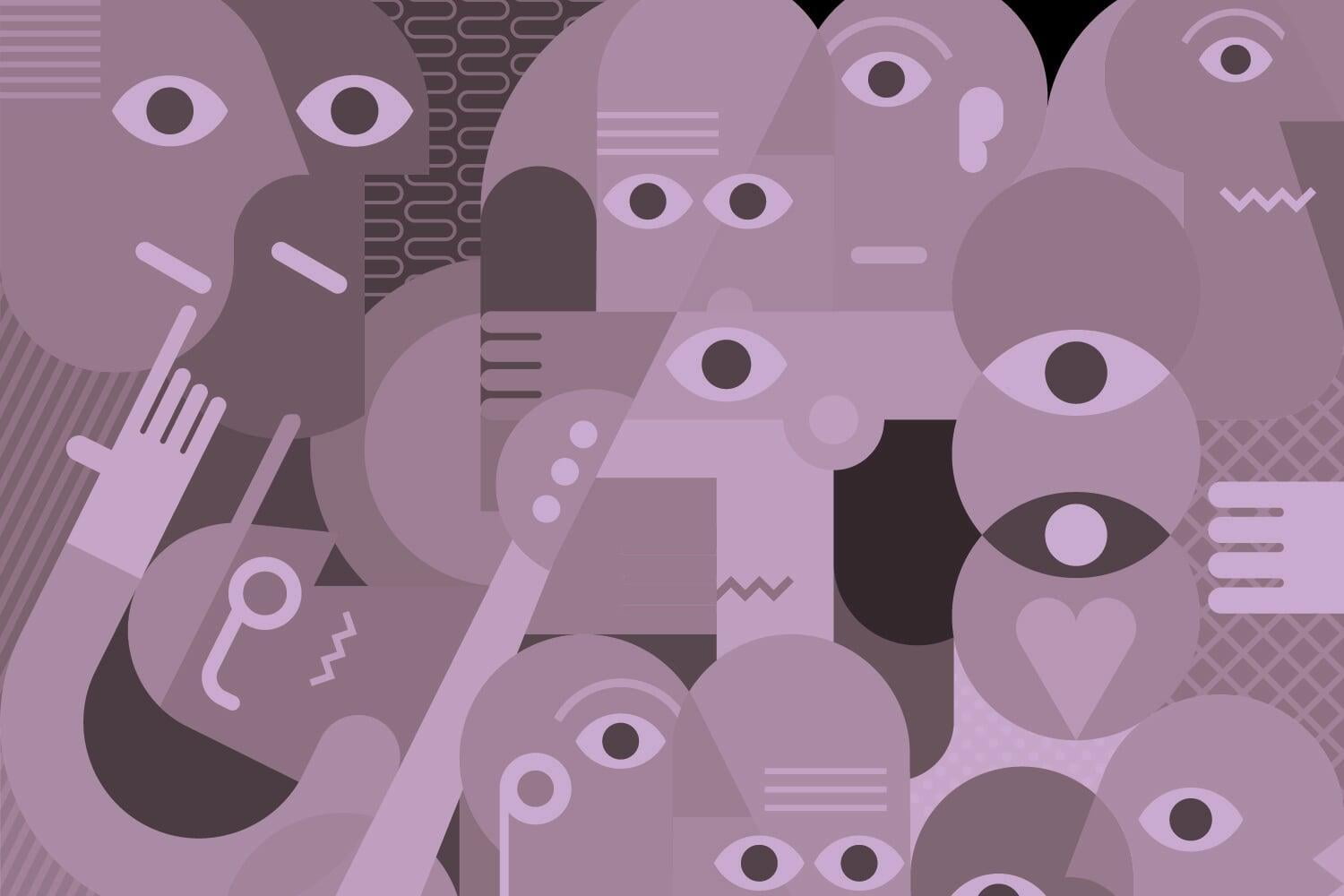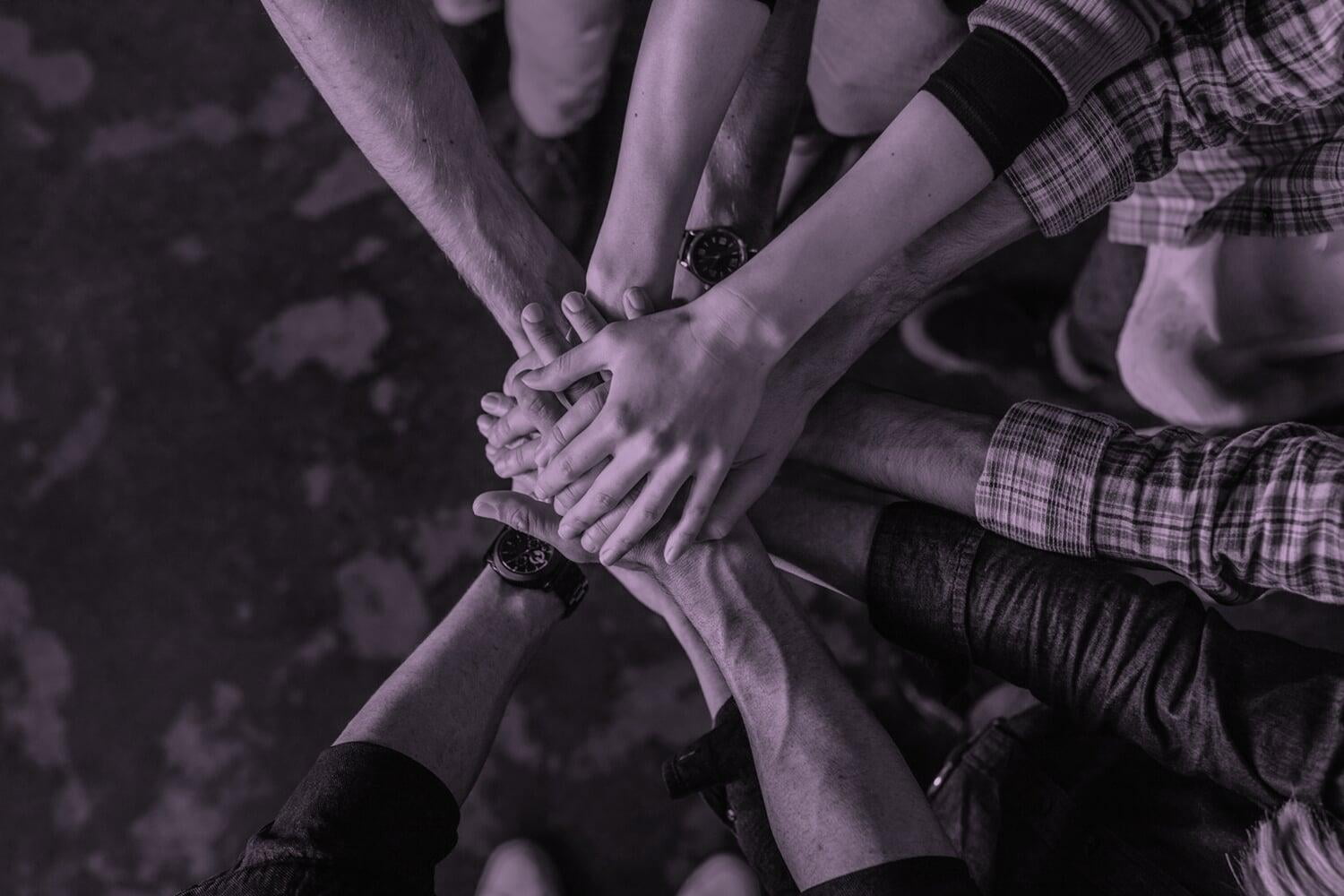The Pathway to Excellence | Live
Relational Development
What is relationality? Our relationality helps us to connect and work well with others in our lives. We need to learn to be open in our outlook and to show respect for both our common humanity and the differences in how different communities and cultures express this. This means looking for the worth and dignity that lies in each other and contributing whole-heartedly together to create and curate purpose-driven and high-functioning teams.

FINDING A SHARED NARRATIVE
The longest lasting and most powerful of our human traditions is the way we tell stories to each other. A narrative is how we bring structure and meaning to our lives. It is how we string together what might otherwise be a series of random and unconnected events in our lives into something that speaks to the purpose of our journey together and how this is lived out. We learn from our earliest days that there is a beginning in which the basic elements of the story are set up for us, and an end in which there is a resolution; in between lie a series of episodes where challenges are faced, problems solved and the “two impostors” of triumph and disaster (as the poet Rudyard Kipling put it) are encountered, all while we learn about the people, place and purpose of the story as we listen to the person telling the story to us.
Stories are, therefore, passed on. We begin with listening and, in time, we come to learn to shape our own stories for others. Our relationality is how we intertwine those two acts of listening and telling. We cannot connect fully with the humanity of another person unless we can hear their story, acknowledge their journey, and show that we care for them as much as we do ourselves.
Perhaps the hardest challenge is to remember that it is in the act of listening that we can come to learn more about another than we can in expressing our own voice. That we find our own voice and have it respected and celebrated by others is essential to our own development on The Pathway to Excellence. Yet, truly hearing what others say and feel in company will take us much further than speaking to an empty room.
The signals that we give when we allow the time and show the care required to hear what other say about all of the facets of their lives – their joys and sorrows, their hard work and frustrations, the small details of everyday life and the major happenings as they unfold – these are indeed potent. They help us to demonstrate tangibly that the person in front of us matters and is worth our attention and consideration. We do not have to agree with everything they say or do. We just have to care and, in all likelihood so long as there is mutual interest and cause, they will care enough also to want to pay us the same accord in their own way. In this way, if we both care enough and listen hard, we can find a shared narrative that will connect our two stories and, for a while at least, make them one. Together, we might find meaningful ways to work together to help each other, to face our difficulties, to achieve our goals, and become the people we need to become while we enjoy each other’s company and what we both bring to the team we have created.
“There is no greater agony than bearing an untold story inside you.”
Maya Angelou
DEALING WITH DIFFERENCE
The greatest challenge of any group of people usually lies not in the adversity they encounter from outside. Time and again, we hear of stories told that show that it is the meeting of adversity through a combined effort where we each rely on and trust each other that is, for many, the making of their character. It becomes the reason why we create teams: we have a shared mission that requires us to lean on each other and utilise rather than condemn each other’s differences. It demands that we put aside the judgments that cause us to discriminate unfairly because people seem in the first instance not to be “one of us”, and instead seek reasons to identify and celebrate those strengths we all have that can be used to defeat an obstacle or a foe.
Our greatest challenge (and the most common barrier to forming a high-functioning team) is when we find in our differences the opportunity to reject the opportunity to come together and collaborate with one purpose in mind. In other words, when we privilege difference over connection, we put ourselves before others. We deny the power of relationality to work in our favour by harnessing the capacity of a whole collection of competencies to be exercised in mutual support. We surrender to the fear that we may need others to help us, particularly those whom we don’t particularly like for whatever reason. There is a reasonable limit to forbearance; the great Canadian educator Michael Fullan speaks of the importance of 100% of a community working together to improve outcomes for all. If people lack the commitment to the purpose on a sustained basis, then it may be that this team is just not the right one for them. Even then, we should not simply write off their humanity because they have chosen another pathway instead of our own. Wishing them well and holding no grudge serves us just as well as it does them by bringing peace of mind to all.
CREATING VALUE IN EACH OTHER
When we recognise that we are all trying to do much the same things in terms of the big picture of our lives, it becomes easier for us to think about how we might bring value to others on our team. All of us are on The Pathway to Excellence. It is a natural and normal part of human development a journey of inquiry in search of meaning and the discovery of truth and relevance. The journey helps us to:
- Learn the self-awareness of knowing ourselves through asking: who am I?
- Live in relationships built by earning our places through asking: where do I fit in?
- Lead as a servant who goes on a journey from me to you to us through asking the question: how can I best serve others?
- Work vocationally and find our calling by asking the question: whose am I?
Perhaps, then, we can be thinking of what we can do to help others to find the answers to these questions. We can’t do the work for them. Their answers have meaning and relevance because they own them. This sense of ownership is, ultimately, what brings the most value to people. When we believe something is truly ours, then we will be much more likely to do the work required to reject any immediate gratification and seek the reward of growth and achievement in the long term. We will be much more likely to put aside self-centredness and give of ourselves with decency and love so that others might benefit. We will be more likely to find ways to see the good in the members of our team and compensate for their deficiencies with a light touch. We can create value in each other and for each other together as a team whose bonds are generated from deep connections of relationality and purpose.
Part of this means acting as guides and mentors along the way from time to time. In the first instance, we can model for our team what belonging, fulfilling potential, and doing what is good and right might be for us and others we have come across. Many people like to have a model given to them in the first instance so that they can try it on for size before adjusting it in small and big ways to suit their own purpose. Or they reject it and go off in search for another model; they can continue doing this for as long as it takes to find an answer that is right for them. They may never find a complete or enduring answer, but the experience along the way may well equip them with the qualities of adaptive expertise and self-efficacy required for them to develop the character and competencies to thrive in this world. They can at least experience progress and wellness. They don’t need to be perfect or even exceptional. They do need to be committed to growth and to being the best version of themselves that they can be. They need to know what they are learning – aspiration. They need to go on a journey of encounter, connection, challenge, and discovery to acquire character and competencies – experience. They need to collaborate with teachers, mentors and experts as the co-authors of the narrative of their learning journey – agency. They need to discover their own identity and how best to express it through their learning and relationships – voice. And they need to be provided with the time, support, and conditions that will help them to make the most of their learning – resource.
So, we can model for others what a purpose-driven approach might be and how we can share values and beliefs that connect us to each other rather than drive us apart. We can also coach them by providing feedback and encouragement, and we can help them by providing the structures of culture, expectation and methodology that will help them to make better and wiser choices. We can pass on our expertise and then let them go so that they can do the same for others. If all things are as they ought to be, their strengths will come to the fore in their learning, living, leading and working. This will allow them to both leave their mark and to measure up in terms of their sense of belonging, the fulfilment of their potential, and their propensity to do that which is good and right. And they will also have passed on the value that they have found along the way to others because they know that the generation of value occurs best when it is the product of collaboration within a community that is genuinely seeking the best for each other in achieving their purpose. Value, therefore, comes best from teams.
LOCATING RELATIONALITY IN OUR LIVES
In the end, we believe that people can and should work towards improving their own qualities of relationality by:
- Building a robust and resilient sense of perceived belonging and social standing – how you recognise that you are connected to, bring value to, gain from, and are valued by your network of family and friends for these contributions and the humanity you bring to others
- Adopting an open and respectful approach to cultural fit and understanding – how you identify with and respond to the history, culture and honourable traditions of your social grouping while also connecting with and learning from those of other communities
- Working on a range of language skills that will enable a broader, richer, and more compassionate experience of the world – how you deepen your understanding of how to communicate with other people using your own and other languages and associated customs
- Locating their capacity to grow in connection and shared purpose with others through improving their relational skills – how you develop your ability to listen with care and empathy to the voice of others and to seek out ways to find common ground, appreciate difference, resolve conflict, and achieve the satisfaction of mutual interests and concerns







